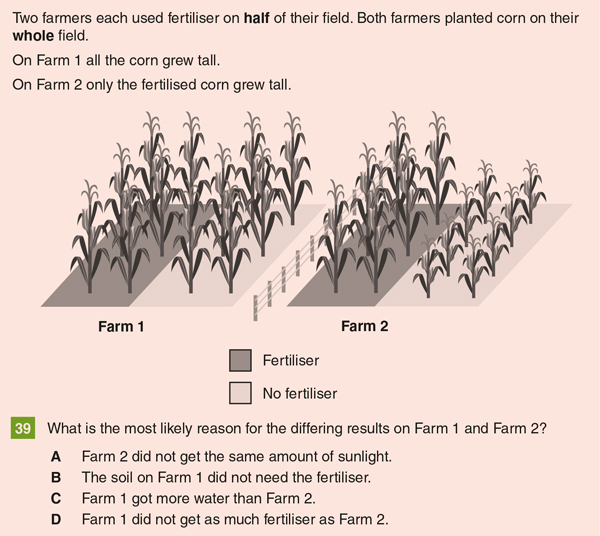
Inquiry-based learning: Assessing students’ science inquiry skills
Research 15 Nov 2017 4 minute readInquiry-based approaches to teaching yield substantial benefits to students, but an assessment of students’ science inquiry skills indicates more emphasis is needed on the development of inquiry-based teaching and learning. Abha Bhagat reports.
Inquiry-based learning: Assessing students’ science inquiry skills
Findings from an ACER evaluation of the science inquiry skills of students from Class V to VIII in schools in India suggest there is room for improvement in implementing an inquiry-based teaching approach, at least in terms of students’ abilities to undertake scientific inquiry.
The evaluation draws on data from the International Benchmark Test (IBT), a large-scale assessment for students in Classes III to X in English, Mathematics and Science conducted in schools in India, the United Arab Emirates, Malaysia and South Africa.
The study used IBT multiple-choice questions designed for students from Classes V to VIII to assess science inquiry skills in:
- reading and interpreting information on a graph
- evaluating and suggesting improvements to an investigation
- identifying a scientific problem
- making scientific predictions, and
- drawing conclusions based on evidence.
Assessing critical thinking and problem solving skills
Using results from the IBT, the study found that, while students across Class V to VIII have a moderate ability to read and interpret bar graphs correctly, there is no significant improvement in this skill as students move from Class V to VI to VII and VIII.
At Class VIII, 50 per cent of students can read a simple line graph and identify a single piece of information on a graph but find it difficult to identify patterns or trends indicated on the graph.
In terms of their ability to evaluate and suggest improvements to an investigation, 60 per cent of students at Class V are unable to understand the variables involved in a simple experiment related to dissolving salt in water at varying temperatures.
Similarly, around 50 per cent are unable to identify a scientific problem when presented with a real-life context related to understanding the purpose of a simple day-to-day investigation.
Students at Classes VI, VII and VIII struggle with questions based on science inquiry. More than 60 per cent of Class VII students cannot make a scientific prediction related to the outcomes of a context involving the concept of camouflage in animals.
Students have particular difficulty drawing conclusions based on evidence of the kind provided in the IBT item below, and in general more than 60 per cent lack the ability to think critically and draw conclusions based on observations.
Challenges in adopting an inquiry-based approach
One of the difficulties in implementing an inquiry-based teaching approach is that there is substantial variation in what educators mean by inquiry-based teaching, and a lack of understanding of the skills required to help students generate their own inquiries and guide rather than direct the investigation that follows.
Inquiry-based teaching requires planning and skills in:
- providing students with learning experiences that stimulate curiosity and inquiry;
- developing relevant and individualised questioning sequences that guide students in their own appropriate inquiry-based learning;
- managing multiple student investigations at the same time;
- continuously assessing the progress of each student as they progress from; formulating inquiry questions to articulating detailed answers; and
- responding to students’ emerging queries and providing inquiry-based support when they turn down blind alleys or reach an impasse.
Findings from the study suggest that teachers need professional learning not only in inquiry-based teaching techniques but also in understanding how students learn.
Analysis of data from the 2015 cycle of the OECD Programme for International Student Assessment by Mona Mourshed, Marc Krawitz and Emma Dorn suggests that engaging, carefully planned instructional lessons also remain important.
Overall, the message for teachers and students is that science is not simply a body of knowledge to be learned, but a way of thinking and problem-solving that can be applied to a range of real-life situations.
Further information:
A longer version of this article first appeared in Teacher, published by ACER in India and the UAE. Find further information and subscription details.

